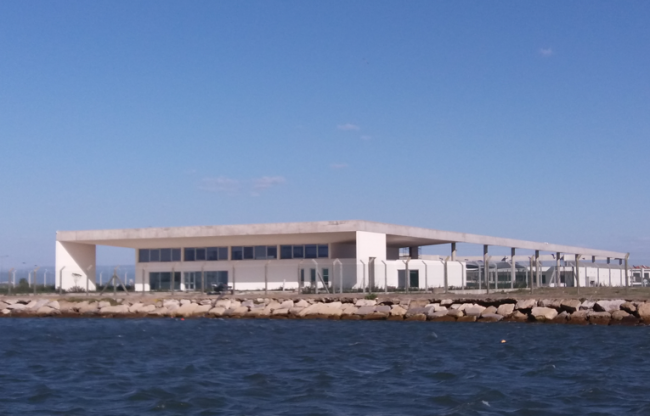

The Center for the Study of the Environment and the Sea (CESAM) plays its role in this field, being an institution that is ready to meet the challenges we face.
By Ulisses M Azeiteiro *
Luís Vaz de Camões wrote, in the sixteenth century, two poems that can be interpreted today with new meanings.
“The whole world is made of change,
We always take on new traits.
It can be interpreted, five centuries later, as a reference to climate change [1].
As the poet wrote in the first Kantō [2]:
Appointed weapons and barons,
That from West Lusitana Beach,
By seas she has never sailed,
They have also bypassed Taprobana,
In perils and hard wars,
promised more than human strength,
And among the people far away they built it
The New Kingdom, which is very sublime; “
Louis Vaz de Camويسes (1524-1580)
It is true that in the same context of discovery, this time in new meanings, those of oceanography, we can highlight the role the sea has always played in our identity.
The oceans, which were once pathways for the discovery of “distant people” and new worlds, are the sources of life and provider of ecosystem services, are currently struggling with serious environmental problems. From the writings of Fernão Mendes Pinto and Padre António Vieira and Shipwreck Reports by Bernardo Gomes de Brito, we turn the tragic about a shipwreck into ecological and ecological dimensions, hard to approach, but essential to a new paradigm of oceanic sustainability. Initiatives under the 2030 Agenda, i.e. the Sustainable Development Goals (SDGs) 14 (as well as 13), the Ocean Science Decade for Sustainable Development and the United Nations Decade for Ecosystem Restoration demonstrate international interest in solving urgent problems that we face.
Ocean research plays a key role in the pursuit of Sustainable Development Goal 14 (“Protection of Marine Life: Sustainable and Sustainable Use of the Oceans, Seas and Marine Resources for Sustainable Development”), as well as the goals and desired outcomes of the actions of the “Ocean Science Decade for Sustainable Development” .
The Center for the Study of the Environment and the Sea (CESAM) plays its role in this field, being an institution that is ready to meet the challenges we face. Highlighting my projects “ValorMar – Integrated Valuation of Marine Resources: Potential, Technological Innovation and New Application Mobilization Programs – PI: SONAE SA” and “HACON – Hot Vents in the Ice-Covered Ocean: The Role of the Arctic as a Connection Path between Ocean Basins We invite FRINATEK in the FRIPRO Program of the Norwegian Research Council “as evidence of equivalence, societal value and internationalization.
The Center for the Study of the Environment and the Marine (CESAM), which has had associate laboratory status since 2005, is a research unit of the University of Aveiro and has been assessed as ‘excellent’ by the FCT since 2014. Mission To advance international research of excellence in environmental and marine sciences The sea is very present in its constituent, foundational, and functional matrix.
Next year 2022 we will have the International Year of Fisheries and Aquaculture. CESAM develops projects in these areas. I highlight the projects “AquaMMIn – Development and Validation of an Integrated Multi-Feeding Aquaculture System for Marine and Brackish Water Species Mar2020”, “NutriMo – Development and Implementation of Community-Based Aquaculture Projects in Developing Countries in Africa FCT – AKDN” and “FISHAQU” – Exchange Knowledge about the sustainable management of fisheries and aquaculture in the Mediterranean region “Erasmus + Program” as manifestations of the CESAM message framed in the needs of community and sustainable development.
The sea is part of our culture and identity. May we continue, through science, the history that binds us to the sea.
* Coordinator at CESAM for the thematic line “Ecosystems and Marine Resources (MER)”. The article was originally published on UA.pt.
[1] Dias, Joao. (2016). “The whole world is made up of change.” Considerations about climate and its history. i – the terrestrial climate system.[2] The Lusiads – Luís Vaz de Camões – 1572
Advertising, services and donations
To learn about and activate campaigns on NoticiasdeAveiro.pt, as well as discover / order other services and make donations, use our online platform.

“Wannabe internet buff. Future teen idol. Hardcore zombie guru. Gamer. Avid creator. Entrepreneur. Bacon ninja.”
